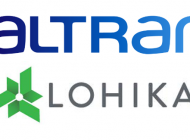Eastern European software developers and Unicorns, how are they related?
Every Unicorn starts with an idea, inspiring founder(-s), and a talented employees. So, there’s no wonder that many of them laid their eyes on Eastern Europe to extend or build their development teams. And Uber, worth $51 billion and number one on the Unicorns list by CBInsights , is no exception.
Last week, when I was at Login conference in Vilnius, Uber held a series of masterclasses there, and not without purpose. And the explanation is simple: Uber is on recruitment spree, and their active presence at Login’s agenda was a part of the job advertisement campaign. In October 2014, the company has opened a development center in Lithuania. To date, they have 20 site reliability engineers there, and they are planning to at least double the headcount by the end of 2016. Uber even launched a microsite for Lithuania to attract top local developers, as well as talent from the neighboring Belarus and Ukraine.
Besides Lithuania, Uber sources engineering talent from Sofia, Bulgaria, where they opened an offshore office at the end of 2015. And in the beginning of 2016, they established an international customer support centre – Center of Excellence – in Kraków, Poland. Uber is planning to hire 140 IT and customer service specialists by the end of 2017, and to invest Eur 9 million in the project until 2020.
By the way, another Unicorn and a long-distance ridesharing startup Blablacar, valued at $1.6 billion, has a development office in Warsaw, and they organize meetups to build a community around the company.
It wasn’t initially planned that this post will turn into “Eastern European engineering teams of ride-share startups”, but it did. So, let me also point to Juno, an emerging Uber’s competitor, which just started an open beta in NYC. It is a startup that was created by the co-founders of Viber, a messaging app sold to Rakuten for $900M. Talmon Marko, the Israeli-American entrepreneur behind these companies, developed his first successful startup in Belarus. In the beginning, they had an outsourcing partner, and later on, started their own operations there. Talmon was happy about the overall experience and the engineering talent they had found in the country, chose Minsk again to create Juno, which now employs more than 50 people.
Contact us if you are looking to build your startup (or just prototype or MVP) and you need help in finding the right engineering talent in Eastern Europe.










